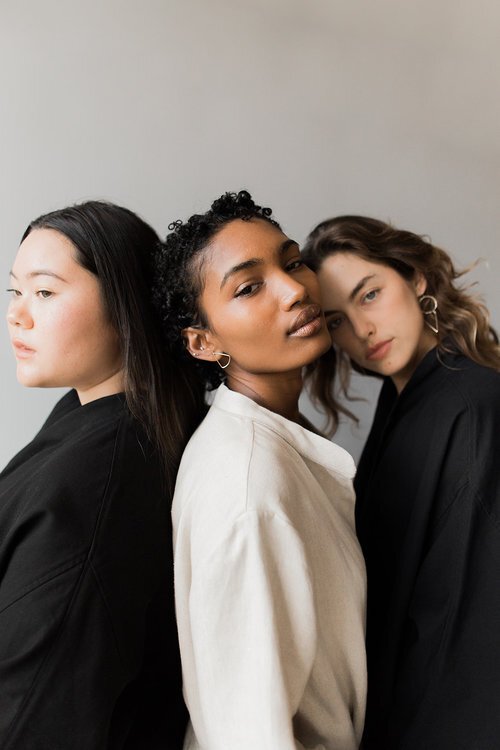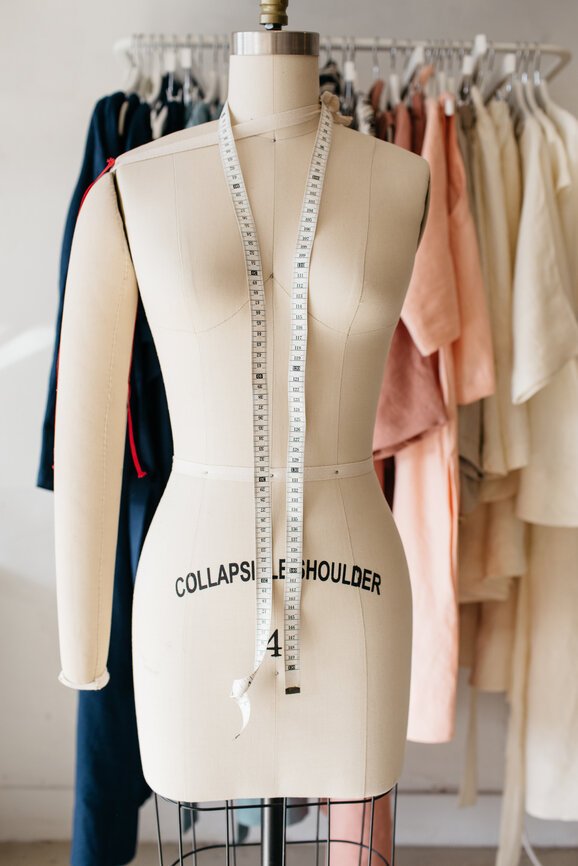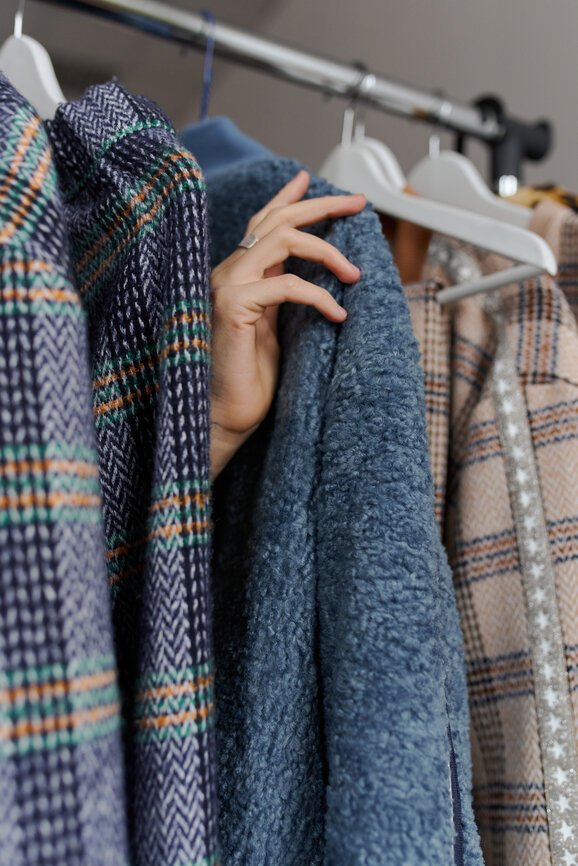
What Is Ethical Fashion?
There is no easy definition.
If you’ve been reading The Good Trade for a while, you’re likely familiar with the concepts of fast fashion, sustainable fashion, and slow fashion. Yet, some of the buzzwords surrounding ethical fashion are understandably frustrating to consumers and industry experts alike. What is ethical? And how is it measured? We can all agree that ethics help guide us towards being better people—but what does that actually mean?
While vague, the answers invite us to have a comprehensive discussion about what ethical fashion has the ability to mean and how we, as consumers, can help brands become more transparent. The end result is much more about values than it is about rules, not unlike this entire movement.
The Evolving Definition Of Ethical Fashion
Ethical fashion is garment design, production, and distribution that focuses on reducing harm to people and the planet. In the most ideal sense, it benefits those working along the supply chain and creates a better future for everyone—not just for those at the top.
“Ethical fashion benefits those working along the supply chain and creates a better future for everyone.”
Ethical fashion is concerned with social impact and the ethics behind a brand’s label (though again, the term “ethics” here is vague). The phrase, which was coined rather recently, is thought to be the opposite fast fashion. Most consumers interpret ethical fashion as a term created in response to an industry that’s notorious for underpaying employees—and in unsafe factories and working conditions, no less. Ethical fashion seeks to answer questions like “Who made this garment?” and “Is that person earning a fair living wage?” But it’s also much more than that.
According to WWD, consumers spent more than seven billion hours online searching for “sustainable,” “ethical,” “fair trade,” and “eco-friendly” items in 2020. Moreover, fast fashion had a particularly difficult year. Edited, a retail market analytics firm, claims “in the U.S. and U.K. combined, new product arrivals for Q3 2020 were 11 percent lower than in 2019.” This could indicate a shift and decline in the fast fashion industry, or simply that there’s been a pause in production in response to the pandemic. WWD notes it could be a bit of both.
Ethical fashion advocates are obviously hoping for the former, though it could depend on how quickly truly ethical brands can get their messaging straight for consumers. Without clear information from fashion companies on how, where, and by whom clothing is made, consumers often become overwhelmed and easily susceptible to greenwashing, as well as misinterpreting a brand’s specific ethics. Certifications, thorough reports and honest answers to consumer questions, are the best way for brands to help dissipate confusion.
“I think there’s considerable risk of the meaning of the words ‘conscious’ or ‘eco-friendly’ concerning fashion evolving to become hollow… without providing any further transparency,” Edited market analyst Kayla Marci told WWD. No brand or company can be truly sustainable or ethical according to every individual and their varied values. Vague messaging quickly breeds mistrust among consumers; therefore, ethical fashion participants need to get specific.
“Without clear information from fashion companies on how, where, and by whom clothing is made, consumers often become overwhelmed and easily susceptible to greenwashing.”
The Solution Is More Brand Transparency
From what I’ve gathered, the conclusion is twofold: Let consumers define what ethical fashion means to them according to their personal set of values, and have brands commit to transparency instead of buzzwords. The fashion industry at large is ever-evolving, and attempting to pin down one evergreen definition for categories such as ethical fashion is a moot point.
“Let consumers define what ethical fashion means to them according to their personal set of values, and have brands commit to transparency instead of buzzwords.”
Certainly, there are givens—like fair living wages and safe working conditions. But there is so much more that can fall under the umbrella of “ethical.” Maybe you can’t justify the cost of a new, ethically made garment and secondhand goods are a priority for you. Or perhaps vegan garments are your top priority. It’s difficult to pin down when not everyone’s values are exactly the same. The movement is still learning and growing, and this makes it nearly impossible to simplify the issue or offer a clear-cut definition.
Instead of looking for what they think consumers want to hear (a tall order), clothing companies must instead choose what values matter most to their brand. It’s in their best interest to lay out all the facts—the good, the bad, and the ugly. An honest company is more likely to receive interest from Millennial and Gen Z consumers who care about transparency and authenticity. The more information brands provide, the more likely they are to be praised instead of criticized.
Audrey Stanton was born and raised in the Bay Area and is currently based in Los Angeles. She works as a freelance writer and content creator with a focus in sustainable fashion. Audrey is deeply passionate about conscious living and hopes to continue to spread awareness of ethical consumption.



